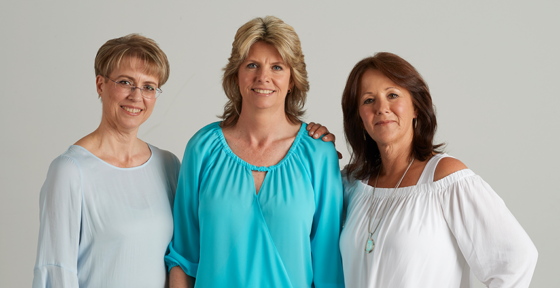
5 minute read
Your most searched for feeding questions
Key points:
- Your baby will likely want to feed every 30 to 90 minutes
- Unused formula should be discarded immediately
- Solids should be introduced around six months but not before four months
When it comes to feeding your baby, you’ll undoubtedly have a lot of questions – and that’s a good thing. At Karicare, we want to be a part of your support crew. That’s why we’ve collected some of the most frequently searched for questions to do with feeding and consulted with our expert Careline team to answer them for you.
Q: What are my baby’s feeding cues?
A: Baby feeding cues can be early, mid or late. Early cues (‘I’m hungry’) are stirring, mouth opening and turning their head. Mid cues (‘I’m really hungry’) are stretching, increasing physical movement and hand to mouth. Late cues (‘Calm me, then feed me’) are crying, agitated body movement and colour turning red.
Q: What is combo feeding a baby?
A: Combination feeding, also known as ‘mixed feeding’, is when a mother chooses to feed her baby a combination of breastmilk and formula. This can be due to several reasons, including insufficient breastmilk supply, mum going back to work, or mum wanting a break from constant breastfeeding, among others.
Q: Can I feed my baby too much?
A: It is important to follow your baby’s feeding cues. Unrestricted feeding, both day and night, is a key factor in successfully establishing breastfeeding and results in optimum milk production. If you are concerned about your baby’s feeding patterns, please consult with a healthcare professional.
Q: Can you reheat formula?
A: It is not recommended to reheat formula. Once formula has been prepared according to label instructions, it must be consumed immediately, and any remaining formula should be discarded.
Q: When should I stop feeding my baby at night?
A: Young infants may feed eight to 12 times in 24 hours, including several times during the night. Unrestricted feeding, both day and night, is an important factor in successfully establishing breastfeeding.
Q: Why is my baby feeding every hour?
A: Most newborns feed every 90 minutes to three hours. In the first few weeks of life, it is normal for babies to nurse more often. As they get older, they will nurse less often and may establish a more predictable schedule.
Q: Can I start feeding my baby solid food at three months?
A: At three months of age, an infant should be exclusively breastfed (if possible) or, alternatively, formula or combo fed. Introducing foods into a child’s diet is an important milestone that can begin at around six months old.
Q: When and how should I introduce solids?
A: Introducing solid foods into a child’s diet can begin around the age of six months, but not before four months. It’s a good idea to introduce one food at a time to see how the child reacts and if there are potential food allergies. As a general rule, waiting three to five days between each new food is a good idea.It is easier to start with pureed or mashed foods to give the child time to adjust to new textures, before introducing more solid foods. It’s also important to think about the key nutrients required in a child’s diet (such as iron and zinc).
Q: What are good first foods for my baby?
The introduction of solid foods at around six months should start with iron-containing foods, including iron-enriched infant cereals, pureed meat, poultry and fish, or cooked tofu and legumes. Vegetables, fruits, and dairy products such as full-fat yoghurt, cheese and custard can then be added to their diet.Other than starting with iron-rich first foods, there are no recommendations on the order in which things should be introduced.The most important factor is nutrient content, including adequate amounts of iron and zinc, fat, protein, vitamins and other essential minerals. Try and select foods that represent each of the five food groups. Also, even from an early age, fruit and vegetable purees should be varied to ensure adequate energy and nutrient supply.Some examples of appropriate first foods include:
- Single-grain iron-fortified cereal mixed with breast milk or formula. Start with one or two teaspoons.
- Pureed vegetables or fruit with no added sugar or salt. Start with single ingredients like mashed banana. Then, after three to five days, introduce mashed avocado, then mashed pear, mashed pumpkin, and so on.
- Bite-size soft finger foods like a spoonful of a small pasta like risoni, small amounts of cottage cheese or ricotta, or well–cooked meats like bite-size pieces of soft chicken.
Q: Why is my baby feeding less?
A: Babies feed more often in the first weeks of life and can also go through periods of rapid growth where they may feed more than usual. As they grow older, they may want to feed less often, especially once they start on solid foods.
Q: How can I prevent my baby choking?
A: Be careful not to offer a child any foods that might cause choking, including small round things (like cherry tomatoes and grapes) or hard foods like nuts. Offer safe sizes of food for them to eat and ensure your child is alert and sitting up straight. It’s safest to watch them eat, as well.
Related content




